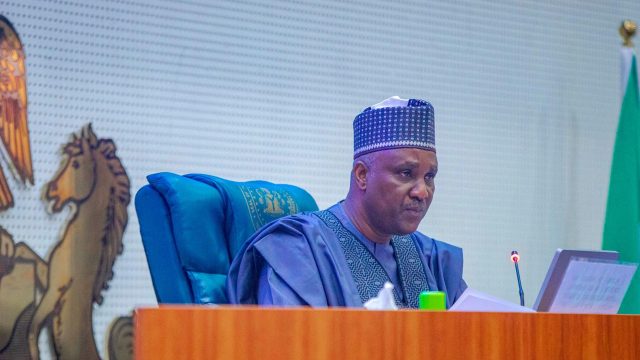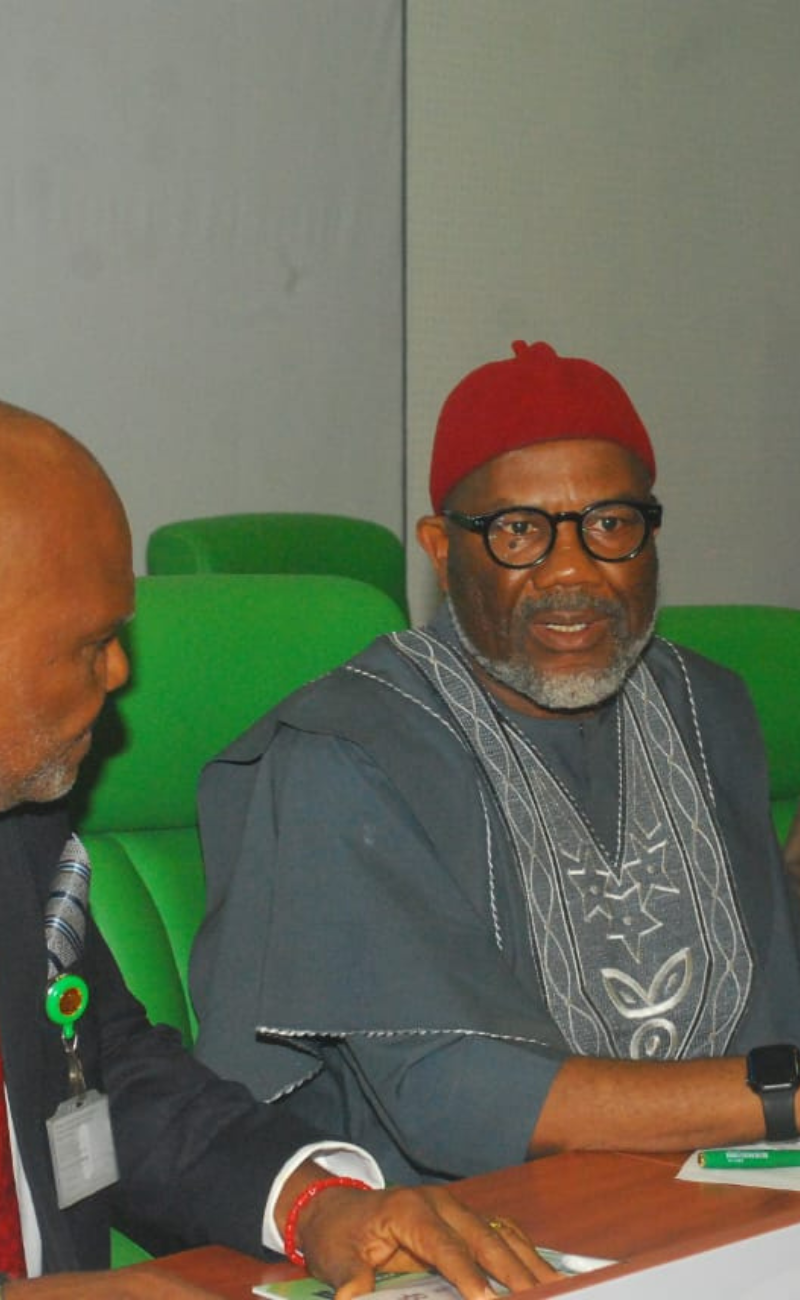The Federal Government proposed the Compressed Natural Gas (CNG) initiative as both a palliative measure and a long-term solution to cushion the effects of high petrol prices. The CNG policy was expected to reduce transportation costs, improve air quality, and stimulate industrial development across the gas value chain. Unfortunately, concerns have since been raised over the pace of implementation, infrastructural readiness, safety standards, and the sustainability of the initiative.

The Speaker of the House of Representatives, Rep. Tajudeen Abbas (APC, Kaduna), has described Nigeria’s Compressed Natural Gas (CNG) Policy as a cornerstone of the nation’s energy transition agenda, warning that its success depends on transparent implementation, strong oversight, and inclusive delivery.
He revealed this while speaking at a recent investigative hearing convened by the House Ad-Hoc Committee on the Implementation of the CNG Policy in Nigeria, to evaluate the status of the CNG policy implementation and interrogate the processes, ensuring it is transparent, safe, viable, and ultimately beneficial to all Nigerians.
Rep. Abbas, who was represented by Rep. Sada Soli (APC, Katsina), reiterated that the CNG policy is a key component of our nation’s energy transition agenda as it represents a strategic shift towards cleaner, safer, and more economically viable alternatives to conventional fossil fuels, especially in our transportation sector
“With Nigeria’s abundant reserves of natural gas, the promotion of CNG as a motor fuel is not only logical but also vital to achieving our broader goals of energy security, environmental sustainability, and economic diversification,” he emphasised.
He noted that although the CNG policy was rolled out as part of the Federal Government’s post-subsidy palliative package, its delivery has been riddled with delays and unanswered questions.
“As the People’s Parliament, the House of Representatives has a constitutional duty to provide oversight on policies that affect the welfare and livelihoods of Nigerians. Our concern is not just about the intentions of the policy, but the mechanisms of its execution — are the funds appropriated being judiciously utilized? Are Nigerians feeling the impact? Are safety and environmental standards being upheld? Are stakeholders adequately carried along?” he asked.
He further described the hearing as a platform to hear directly from the relevant MDAs, operators, industry experts, and the Nigerian people. He urged all stakeholders to see it as an opportunity for accountability and constructive dialogue on how to ensure the successful rollout of the CNG policy in the interest of national development.
READ ALSO: Reps panel to probe safety viability of the CNG

Also speaking at the event, Chairman of the Ad-Hoc Committee, Rep. Jaha Ahmadu (APC, Borno), outlined the committee’s core mandate which include:
- Assessing the safety, viability, and sustainability of the CNG programme.
- Investigating geographic equity in the distribution of conversion centres.
- Evaluating alignment with international standards.
- Examining whether Nigeria’s legal and regulatory frameworks are adequate for such a complex transition.
He emphasised that the committee will scrutinise both public and private sector contributions to the initiative, calling for candid, data-driven presentations from all stakeholders, asserting that Nigerians “deserve answers, not abstractions.”
“If this policy is falling short, this hearing must uncover why—and recommend how to fix it,” Usman said. “If progress is being made, we will document and validate those gains.”
Key questions raised during the hearing include how ₦100 billion from the ₦500 billion palliative fund has been spent, the authenticity of a ₦760 billion private sector investment claim, and the level of distribution and accessibility of CNG infrastructure across the federation.
Other concerns focused on safety standards, availability of technical training, import duty waivers, environmental impact assessments, and whether the policy aligns with national goals on job creation and decarbonisation.
“We are not here to obstruct progress or politicize a national policy. This is not a criminal investigation. But we must ensure that this policy works for the Nigerian people, efficiently, equitably, and sustainably,” he said.
He announced that the committee expects detailed submissions from key MDAs, including the Ministries of Petroleum (Gas), Finance, Transportation, and Environment; regulatory agencies like the NMDPRA, NUPRC, FRSC, SON, and Customs; and transparency bodies like NEITI and the National Bureau of Statistics. He also urged the upstream, midstream, and downstream players to collaborate on a roadmap toward the local production of CNG and other clean energy alternatives.
The hearing was attended by key industry players including the Minister of State for Petroleum (GAS) Mr. James Ekperikpe who was represented by the Permanent Secretary of the ministry, Mr. Vitalis Ibe, the Executive Vice President Gas, Nigeria National Petroleum Company Limited, NNPCL, Mr. Lekan Ogunleye, National Union of Road Transport Workers, The Road Transport Workers Employees Association of Nigeria and officials from the Federal Road Safety Corps (FRSC).
READ ALSO: CNG conversion and mining training institutes – REMTRACKER
Nigeria’s route to adopting CNG
Compressed Natural Gas (CNG) is natural gas stored under high pressure and used as an alternative fuel to petrol and diesel. It is cheaper, safer, and cleaner — offering up to 60 percent cost savings on fuel, less engine wear, and significantly lower emissions.
Nigeria’s CNG policy, first proposed in 2023 as a response to the Federal Government’s fuel subsidy removal, is designed to cut transport costs, drive gas-led industrialisation, and meet global climate targets. With vast natural gas reserves, the country is well-positioned to lead in this space.
The Presidential CNG Initiative (Pi-CNG) launched in 2023 with a target to roll out affordable, cleaner energy for transportation aims to convert public transport vehicles to CNG, set up refuelling stations, and create thousands of green jobs through training and infrastructure. This policy seeks to leverage Nigeria’s vast natural gas reserves to reduce emissions, lower transport costs, and create green jobs.
Key milestones over the past 2 years include the approval of ₦100 billion from a ₦500 billion palliative fund to drive CNG adoption and infrastructure, private sector commitments worth over ₦760 billion, with several partnerships underway to establish conversion centres, refuelling stations, and distribution networks across the country.
Currently, there are up to 300 CNG conversion centres across 24 states, an increase from the 7 conversion centers in 5 states in 2023, with free vehicle conversions ongoing for commercial drivers and government fleets. The initiative has also prioritised training and youth empowerment, reportedly training over 2,000 technicians and auto-gas specialists.
Despite this progress, stakeholders have raised issues around infrastructure delays, uneven distribution, limited public knowledge, and concerns over safety standards and technical capacity. Questions have also emerged around the transparent use of funds, and the pace of implementation, prompting ongoing legislative oversight and public hearings.
Thus, the investigative hearing is a welcome development at this crucial time where there are more questions than answers on the implementation of the CNG policy so far.




